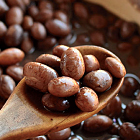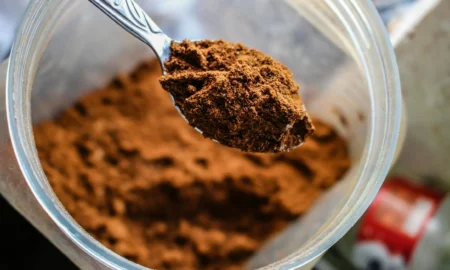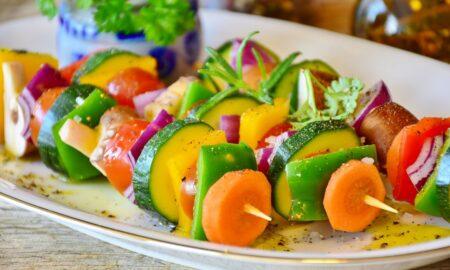 Here we are—Part 4 of this three-part series (yes I did say that). I just have too much information to convey in my allotted space, so here we go.
Here we are—Part 4 of this three-part series (yes I did say that). I just have too much information to convey in my allotted space, so here we go.
To recap, Parts 1 and 2 focused on the Paleo and Primal diets (preagricultural—hunter and gatherer nutrition), and Part 3 began the discussion of the traditional diet (preindustrial—when food was not made in factories).
The traditional diet was broken down into four pillars. The first two were discussed in Part 3: 1) meat, poultry, dairy and eggs should be grass-fed, pasture raised and organic; 2) organ meats from similarly raised animals should be eaten.
Pillar 3: Fermentation and sprouting. whole grains and beans are essentially seeds that are, by design, indigestible. An optimal scenario for the continuance of a plant species would be for an animal to consume them and excrete them undigested and intact with their own personal supply of manure in a place where the plant did not grow before. I have such a way with words, don’t I?
Whole grains and beans contain lechtins which can damage the digestive system and cause inflammation, bloating and allergic reactions. They also contain phytates, which can bind nutrients, especially minerals, and make them unable to be absorbed. That affects not only the nutrients in the offending foods but other foods and supplements around the same time. If that were not bad enough, beans contain trypsin inhibitors, which interfere with protein digestion by reducing the activity of protein-digesting enzymes. Lastly, dairy proteins and sugars—that is, lactose—cause gastrointestinal distress and subtle or severe allergic reactions in a great percentage of the population.
The Paleo paradigm suggests that grains and beans are unfit for human physiology as they have to be cooked, ground or otherwise processed to be digestible to any degree. The traditional diet’s answer is fermenting and sprouting, which break down, at least in part, the lechtins, phytates and trypsin inhibitors in food. Yogurt and cheese are fermented dairy and far more digestible than milk.
If you’ve eaten real sourdough bread, you’ve had fermented grains. If you’ve tried Ezekiel Bread, you’ve had sprouted grains. Luckily, sprouted brown rice, a.k.a GABA rice; sprouted quinoa; sprouted oatmeal and other sprouted grains are available. They exponentially increase the digestibility, nutrient content and absorption of these foods. I use them on most of my clients who are eating off-season carb allotments.
Interestingly, white rice has no lechtins, phytates or protease inhibitors—just starch. So an interesting diet variation is Paleo all day long with white rice postworkout for glycogen replenishment.
Finally, fermented vegetables are nature’s probiotics and are invaluable for efficient digestion. Try kimchi, real probiotic pickles and sauerkraut. Healthy digestion will improve your utilization of foods, which will enhance all your bodybuilding and fat-burning endeavors.
Pillar 4: Fresh and raw. At least once a day eat a large salad made with organic vegetables. Go for as many colors in the food spectrum as you can—at least when you aren’t on a contest diet. There’s nothing wrong with cooked veggies; just go big and go raw once a day. Your body will thank you. Nuts are best eaten raw and possibly sprouted, if you really want to split hairs.
“Fresh” speaks for itself—eat in-season produce and, when you can get it, locally grown. I’m not a tree-hugging greenie, but the superiority of these items is undeniable.
Tying together all the concepts from the four parts of this series, here are my 10 commandments of Paleo and traditional nutrition, which will certainly enhance your health and physique. My clients, who are serious about winning, use some, if not all, of these rules:
1) To the extent that you can, eat grass-fed, pasture-raised organic meat, poultry, eggs and dairy. The difference is in the quality and ratio of the fats, some of which are quite anabolic. Don’t dismiss organ meats or meat on the bone.
2) Limit, if not eliminate, processed carbs and sugars. White rice is allowed in a postworkout meal if it works well for you.
3) Beans are a “Third World protein,” so if you eat them, do it for the carbs. Make sure they are properly soaked and cooked.
4) Your off-season diet can include grass-fed, full-fat diary—preferably not homogenized or pasteurized. This is where real CLA and other growth factors come from.
5) As a species we were never meant to have a superheavy carb load. Figure out how much carb and protein you need, and use healthful fat as the variable for gaining weight and size. You will be healthier, with more solid gains, to show for it.
6) Whole grains, if you eat them, should be sprouted or fermented. The way your body uses them and their affect on blood sugar is strikingly different from what happens with normal “healthy whole grains.”
7) Eat plenty of vegetables and some fruit (unless you’re on a contest diet). Some of it should be raw, preferably organic and seasonal. Give fermented vegetables a shot.
8) A healthful offseason diet for an athlete may very well be 30 percent protein, 35 percent carbs and 35 percent fat—if the fats are chosen wisely. Remember, unhealthful fat comes from factories, not nature.
9) Paleo-approved concentrated carbs, such as sweet potatoes, purple potatoes, plantains and yucca, are higher in nutrients and have fewer antinutrients than most whole grains.
10) If you can hunt it, pick it or dig it, you are probably on the right track. You should also give much more scrutiny to the quality of foods with bar-codes.
—Ron Noreman
Editor’s note: Ron Noreman (RonNoreman.com) is a partner in Kamler, Lewis & Noreman LLP (KLNcpas.com), a certified public accounting firm that specializes in tax representation and management of professional athletes, nutritional-supplement companies and weight-training-equipment manufacturers. He has been a competitive bodybuilder for 35 years and has won numerous titles, is the founder of Alchemy Nutrition and offers contest-prep coaching and holistic-nutrition consultations. He has also formulated antioxidant supplements for prominent vitamin companies and served as a design consultant for Nebula and other equipment manufacturers.




















You must be logged in to post a comment Login